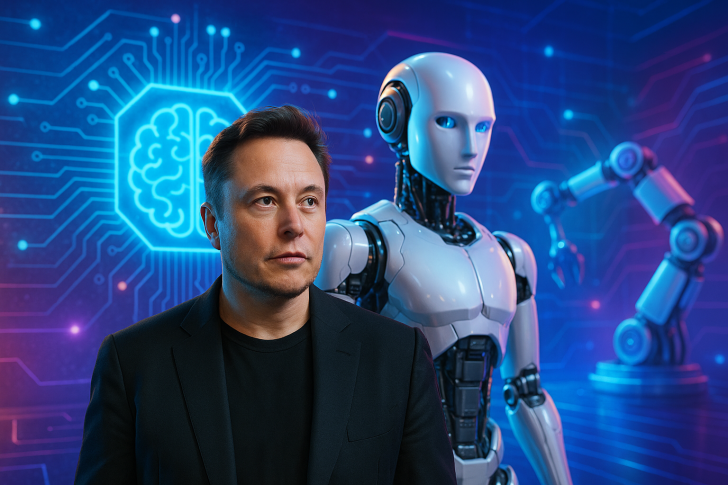⬤ Elon Musk laid out an ambitious vision for how artificial intelligence and robotics might transform global prosperity. He predicts the most likely long-term scenario is a world where "AI and robots make everyone wealthy" — potentially far wealthier than even today's richest individuals. Musk described a future where people have access to "superhuman" medical care and entertainment experiences that blow past anything currently available. He specifically noted that AI and humanoid robots could "eliminate poverty" entirely.
⬤ The key driver, according to Musk, is exponential growth in AI-powered automation that could completely change how value gets created and shared. By handing off most physical and mental tasks to autonomous systems, global output could explode at rates we've never seen before. He envisions advanced AI eventually handling virtually all forms of work, giving people access to high-quality services across healthcare, entertainment, and everyday life. This outlook fits with his longstanding belief that AI will unlock massive productivity gains across society.
⬤ Still, Musk stressed one critical condition: AI systems must be built with a strong focus on "truth and beauty." He made clear that how we align these systems and what values we build into them will determine whether this prosperous future actually happens. His comments come as debates over AI safety, regulation, and long-term societal impact heat up, especially as autonomous systems become more powerful and widespread.
⬤ Musk's perspective matters because it shapes expectations around technological progress and the future direction of global AI development. If AI and humanoid robotics advance the way he describes, they could fundamentally reshape economic systems, transform labor markets, and redefine what productivity means across industries. The scale of potential AI-driven transformation remains a central focus in long-term market analysis as innovation speeds up.
 Saad Ullah
Saad Ullah

 Saad Ullah
Saad Ullah


